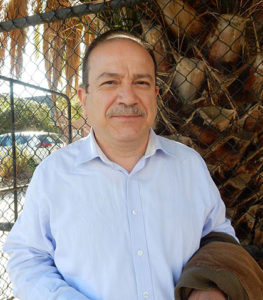Refugee doctors eager to help fight pandemic
Dozens of refugee health professionals across the country stand ready to help out in the fight against the COVID-19 pandemic should they be called on.
In Victoria, almost 40 doctors, pharmacists and dentists, who are in the process of having their qualifications recognised and being given the green light to practice, have joined a register of interest to support the effort to slow the infection rate of COVID-19.
The proposal comes as other countries caught up in the COVID-19 crisis are considering harnessing the skills of recently arrived refugee doctors.
The medicos on the Victoria register are part of a skills recognition program delivered by migrant and refugee settlement agency AMES Australia.
AMES Australia CEO Cath Scarth said the refugee doctors were desperate to contribute to the fight against COVID-19.
“There may be important roles for these refugee health professionals to play. It might be they can communicate the COVID-19 messaging as doctors to their own communities, or maybe there are para-medical roles they could play,” Ms Scarth said.
“When you look at the stress health systems in other countries have come under, there may be a role for these incredibly committed people who are desperate to make a contribution,” she said.
 Syrian refugee doctor Tamer Antakly said he was trying to fast track his qualification recognition process so he is able to help in the fight against COVID-19.
Syrian refugee doctor Tamer Antakly said he was trying to fast track his qualification recognition process so he is able to help in the fight against COVID-19.
He has passed all of medical requirements but the language exam he was due to sit on April 4 has been deferred to June because of the outbreak.
“I would be very happy to help in the fight against this terrible disease. I feel it’s my duty as a doctor to do something to help,” he said.
“Being able to help would give me a feeling of satisfaction in contributing to this country – which has given my family safety. It’s a duty for everyone,” Dr Antakly said.
Dr Antakly was working in Saudi Arabia when conflict broke out in his homeland making it impossible for him to return to his home in Aleppo.
In 2015 he was granted a humanitarian visa to come to Australia and he has since been studying language and clinical courses to qualify to work as a doctor here.
Iraqi doctor Ann Shemiss said she would jump at the chance to contribute to the fight against COVID-19.
“This is an emergency situation for the whole world. I would consider it my duty assist,” she said.
Ann, originally from Qaraqosh – a Christian enclave in northern Iraq – was a GP in her homeland when war broke out.
Now in Australia, she has completed all the required exams and is waiting for provisional with the Australian Health Practitioner Regulation Agency (APHRA)
Last week, the Irish Medical Council told government officials there that they should incorporate into the health system refugee and asylum seekers who were trained as doctors in their home countries.
And Canada is also considering integrating foreign doctors into its health system.
Canadian infection control epidemiologist Prof Colin Furness believes it may be the opportune time for the Canadian health system to be flexible and integrate foreign physicians who may not have gained licenses in Canada.
“We can’t manufacture doctors, we can’t manufacture nurses, we have these experts and we should make use of them, because the situation will become extremely desperate soon,” said Prof Furness, an assistant professor of information in health policy at the University of Toronto.












